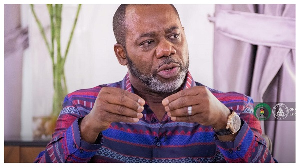Female Gospel artiste, Anita Afriyie has pleaded with the Ghana Music Rights Organisation (GHAMRO) not to collect royalties from Ghanaian churches for using songs for their services as it has planned to do.
The musician who is based in Kumasi said though it is a good initiative its implementation will affect the work of gospel artistes especially those who make their living from church events.
Anita Afriyie added that taking royalties from churches will result in they not being invited by pastors to perform at their programmes.
“GHAMRO should hold on with plans to let churches pay royalties. The churches help us the gospel musicians a lot. If it happens that way, the pastors won’t invite us for programmes and that will affect us,” Anita Afriyie told Ray Charles Marfo on Showbiz Arena. However, the Chairman of GHAMRO, Rex Owusu Marfo (Rex Omar), has said the organisation plans to make churches also pay royalties for the music they use, CitFMOnline reports.
“Yes, we are considering that. We are putting in place the necessary measures to let churches pay royalties because they also use musicians’ intellectual property,” Rex Omar stated during a workshop last week. He added that if all music users would pay for the songs they use, the Ghanaian musician will be financially sound.
In a society where the proposition of churches paying tax has been strongly opposed, some have opined that GHAMRO would have to be strong in enforcing this law.
However, the new Administration is resolute in its fight against piracy and has put together its arsenals to ensure that the Ghanaian music benefits from it’s intellectual property.
So far, GHAMRO has held workshops for the police and the media to educate them on their activities and their role in helping enforce copyright laws.
Entertainment of Thursday, 6 July 2017
Source: kasapafmonline.com

















